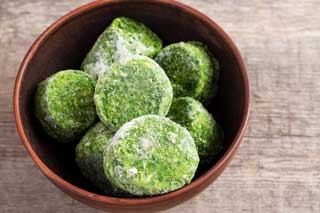Are frozen vegetables healthier than fresh ones?
Blanching veggies in hot water or steam to kill bacteria and get rid of food-degrading enzymes is known to break down or even leach water-soluble nutrients such as vitamin B and C. Flash-freezing, as as the second step of freezing vegetables, however, locks in the nutrients, which results in nutrient-rich vegetables.
In a 2017 study done to compare frozen vegetables to fresh ones in terms of their nutritional value, it was discovered that there were no striking differences in vitamin content. Where slight differences came up, the frozen vegetables were seen to have a nutrient concentration that was slightly higher than that of fresh veggies.
In a different study, it was established that blanching and freezing vegetables for a period of up to 2 months did not change the phytochemical content of the veggies that much. In one study, frozen broccoli was seen to contain a slightly higher amount of riboflavin when compared to fresh broccoli.
Frozen carrots, spinach, and peas were seen to contain a slightly lower amount of beta carotene than fresh ones, but the difference was not significant. A different study showed that uncooked kale, in its frozen state, was richer in antioxidants when compared to fresh kale.
The take-home message after all these studies was that while freezing vegetables can slightly change their content, the extent to which that occurs is not significant.

In a majority of cases, it was seen that freezing even had a positive effect on the nutritional value of vegetables. With the results from the different studies, it was clear that neither frozen nor fresh vegetables could be crowned as being the healthier alternative.
